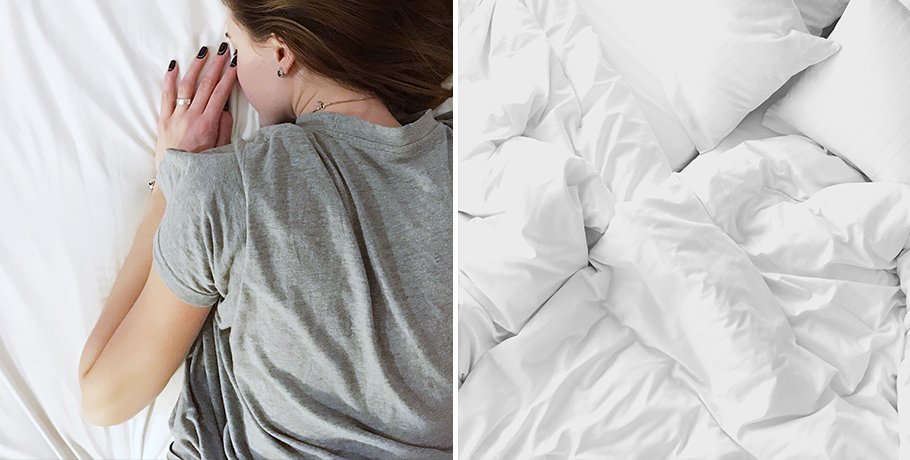
Good Sleep – Perhaps the Most Important of All
Surveys conducted by Statistics Sweden reveal that nearly 25 percent of the Swedish population suffers from sleep problems. Unfortunately, sleep deprivation suppresses the immune system, increasing the risk of illnesses if one doesn’t get sufficient quality sleep over an extended period. Mander, B. A., Winer, J. R., & Walker, M. P. (2017) describe how too few hours of sleep are also associated with impaired memory, reduced cognitive function, and mood disorders. According to Leproult, R., & Van Cauter, E. (2011), animal studies show that sleep deprivation can lead to muscle breakdown conditions, including reduced production of key hormones. Research indicates that the peptide beta-amyloid is more prevalent in older adults who sleep too little.
Having Trouble Falling Asleep?
The habit of watching TV or working on a computer in the evening disrupts sleep and the ability to fall asleep. A recently published study shows that blue light from computer, TV, and phone screens disrupts the circadian rhythm and melatonin production, even when sleeping or with closed eyes. In other words, poor sleep habits are detrimental to your health. Read our 17 practical tips for improving your sleep.
17 Tips for Optimal Sleep and Better Rest
- Establish a consistent bedtime and wake-up time. The number of hours needed for sleep each night and the ideal bedtime depend on factors such as when you need to wake up, lifestyle, age, health conditions, the length and number of sleep cycles, and how long it takes to fall asleep. Experiment to find the best schedule for you. We recommend aiming to be in bed no later than 10 p.m. This means the lights should be off and the room quiet—not lying in bed reading, using a tablet, or scrolling on your phone. If you enjoy unwinding with a book, do so in the hour or hours before bed.
- Maintain regular sleep habits. Try to go to bed and wake up at approximately the same time every day, even on weekends, to maintain a steady circadian rhythm.
- Wind down before bed by creating an evening routine. Dim the lights and switch off electronics like computers, TVs, and phones at least an hour before bedtime. Light a candle, listen to relaxing music, or enjoy a calming herbal tea such as chamomile or lemon balm. Avoid heated discussions before bed.
- Avoid blue light before bed. Blue light from screens disrupts melatonin production. Avoid screens about 90 minutes before bedtime. If necessary, wear Blue Blocker glasses to filter out blue light.
- Keep your bedroom at an ideal temperature. Studies suggest that 18–22°C is optimal for sleep.
- Regularly clean your bedroom to avoid dust accumulation, which can promote mold spores and may contain harmful chemicals like flame retardants.
- Ensure the bedroom is quiet and dark. Use blackout curtains and avoid electronic devices that emit light. Even the red light from an alarm clock can interfere with melatonin production, so total darkness is best.
- Use the bedroom only for sleeping. Avoid using it as an office or a place for other activities unrelated to rest.
- Avoid stimulants late in the day, such as caffeine in coffee, tea, or chocolate. If you have trouble sleeping, avoid caffeine entirely, as it can impact sleep even if consumed in the morning.
- Avoid nutrient deficiencies. Nutrients important for sleep include B vitamins (B3 and B6), vitamin D, magnesium, zinc, and tryptophan.
- Eat foods that promote good sleep. Some people benefit from eating complex carbohydrates at dinner, such as white rice, sweet potatoes, or root vegetables, but avoid refined sugars. Protein rich in tryptophan, such as poultry, seafood, red meat, or fish, can also help. Avoid spicy foods that might cause digestive discomfort or elevate body temperature.
- Reduce alcohol intake, especially late in the evening.
- Avoid eating too late. If bedtime is around 9:30–10 p.m., finish dinner by 7 p.m. Don’t go to bed hungry either, as it can disrupt sleep.
- Take a morning walk outdoors. A 30-minute walk provides exercise and exposure to sunlight, which helps regulate melatonin production and sync your biological clock to the natural light-dark cycle.
- Engage in physical activity. Exercise, including strength training, is shown to improve sleep quality.
- Write a to-do list before bed to prevent overthinking about the next day’s tasks.
- Consider a short nap. If needed, take a 10–20 minute nap, lying down with your eyes closed, focusing on slow, deep breathing at a steady rhythm of 8–10 breaths per minute.
To improve your sleep, follow the advice above and consider these products: B vitamins, vitamin D, magnesium, zinc, and blue light-blocking glasses. Click here to view all products that optimize sleep.
Self-Care Protocol
Our self-care protocols are not intended for diagnosing, treating, or curing illnesses. They are tips and advice for self-care and do not replace conventional medical care. Supplements should not be used as a substitute for a varied diet. A diverse and balanced diet, along with a healthy lifestyle, is essential.
Author
Scientific references and sources
Show referenceLeproult, R., & Van Cauter, E. (2011). Endoc. development, 17, 11–21.
Wu, Y., Swaab, D. F., & Zhou, J. N. (2007). Sleep Medicine, 8(6), 623–636.
Mander, B. A., Winer, J. R., & Walker, M. P. (2017). Sleep and Human Aging. Neuron, 94(1), 19–36.
